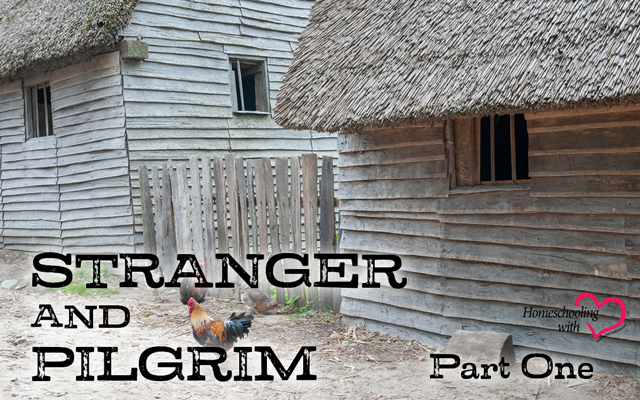Stranger and Pilgrim – Part One


Imagine a marathon where every spectator is a former marathon award-winner. The cheers to the contestants below are full not only of empathy, but chants of courage, shouts of cheer, lingo of fellowship. Hebrews 12 paints such a scene when describing the heavenly stands of those who have earned their eternal reward.
Wherefore seeing we also are compassed about with so great a cloud of witnesses, let us lay aside every weight, and the sin which doth so easily beset us, and let us run with patience the race that is set before us,
(Hebrews 12:1)
One such man would be one of the first Americans to celebrate what we now call Thanksgiving Day. William Brewster is one of most well-known names among our Pilgrim forefathers, but how many of us know why? His friend and fellow immigrant, William Bradford, wrote a very illuminating narrative of this man and his adventurous life.
A life-long student and lover of learning, William Brewster acquainted himself with Latin and Greek – two languages which were key to unlocking the stores of ancient and modern knowledge. Over four hundred years ago, English was still regarded as the tongue of the common people (William Tyndale had been martyred for translating the Bible into English just thirty years before Brewster’s birth) making these ancient languages the equivalent of the Internet for us. After mastering these two gateways of learning, he “went to court, and served the religious and godly gentlemen, Mr. Davidson, for several years, when he was Secretary of State. His master found him so discreet and faithful, that he trusted him more than all the others who were round him, and employed him in all matters of the greatest trust and secrecy.”
So great was Mr. Davidson’s trust in William that he regarded him as family and “knowing his wisdom and godliness he would converse with him in private more as a friend and familiar than as a master. He accompanied him when he was sent as ambassador by the Queen into the Low Countries…to receive possession of the cautionary towns, in token of which the keys of Flushing were delivered to him in her majesty’s name. Mr. Davidson held them for some time, handing them over to Mr. Brewster, who kept them under his pillow the first night. On his departure, the Netherlands honoured Mr. Davidson with a gold chain; he gave it into the keeping of Mr. Brewster, and when they arrived in England commanded him to wear it as they rode through the country, until they arrived at court.”
“Afterwards Mr. Brewster went and lived in the country, much respected by his friends and the gentlemen of the neighbourhood, especially the godly and religious. He did much good there, in promoting furthering religion, not only by his practice and example and the encouragement of the others , but by procuring good preachers for the places thereabouts, a d persuading others to help and assist in such work, general taking most of the expense on himself, – sometimes beyond his means.”
Kenzi Knapp is a follower of Christ, homeschool graduate and student of history. A fourth generation Missourian she enjoys writing about daily life enrolled in Gods great course of faith and His story throughout the ages at her blog, Honey Rock Hills.
Source: Of Plymouth Plantation by William Bradford, rendered into modern English by Harold Paget in 1909 and published by The Vision Forum 2009: p. 315-316











































